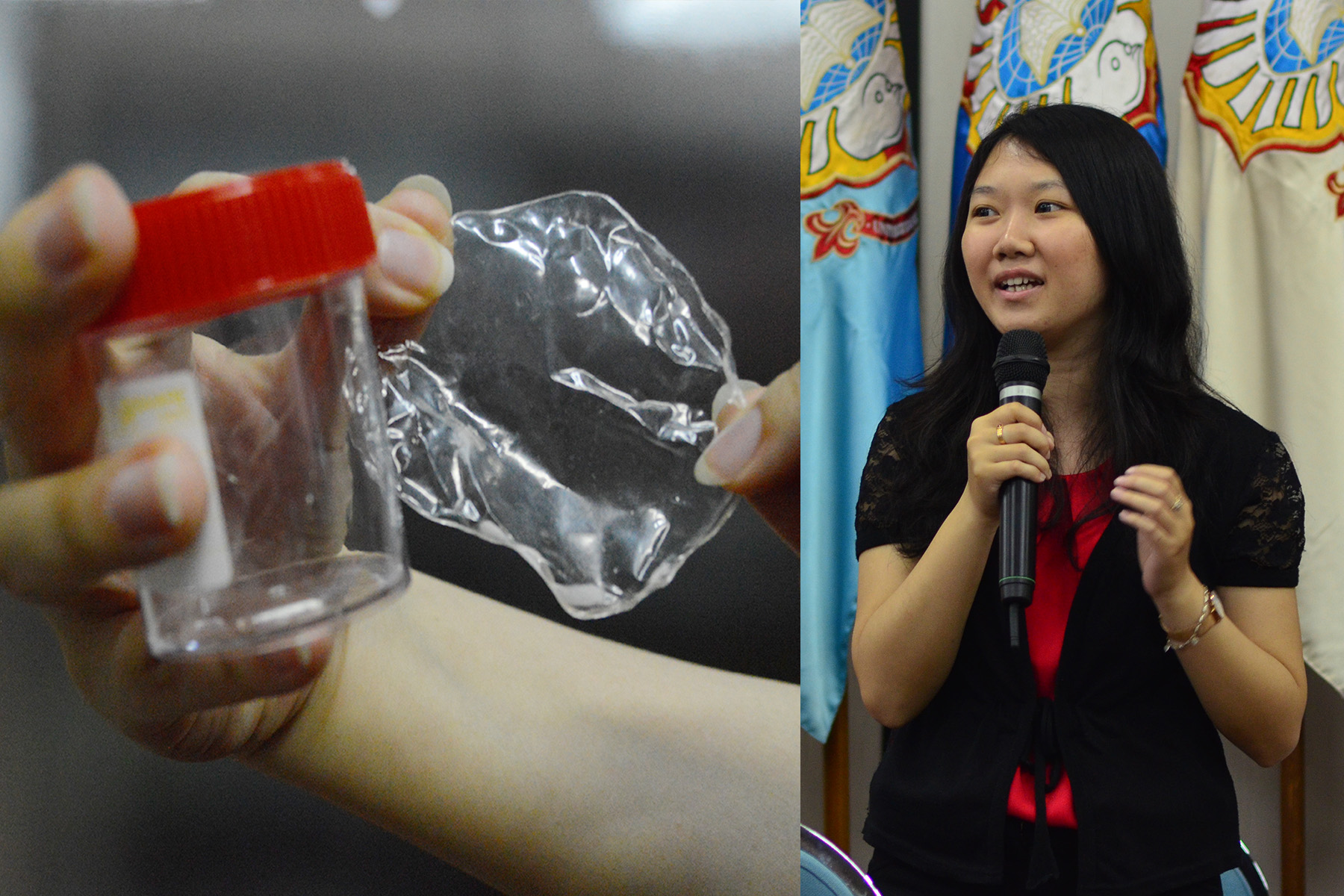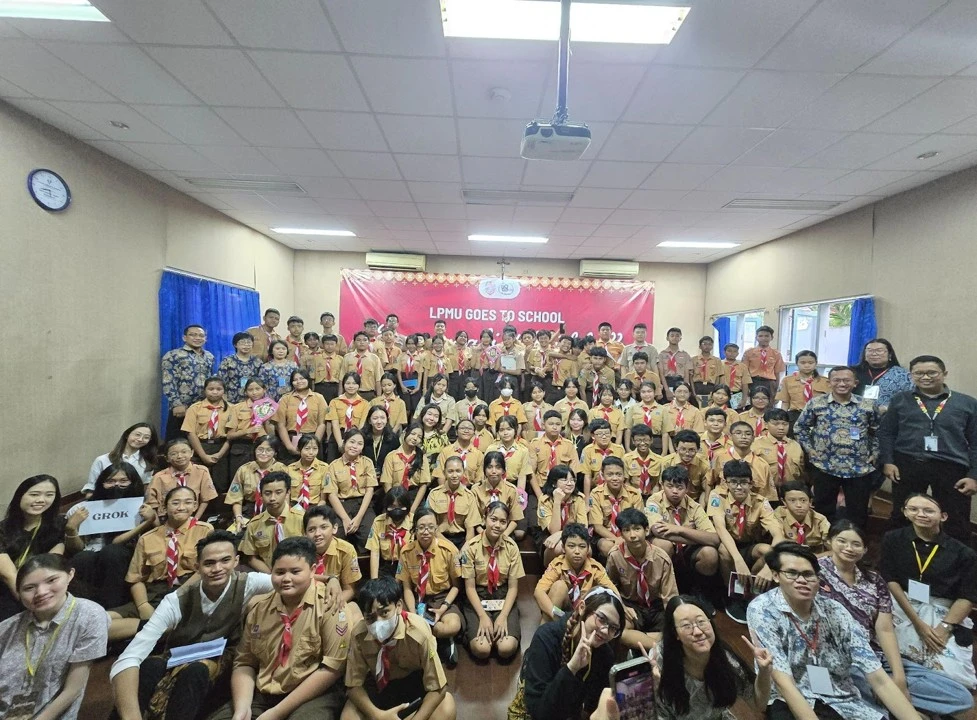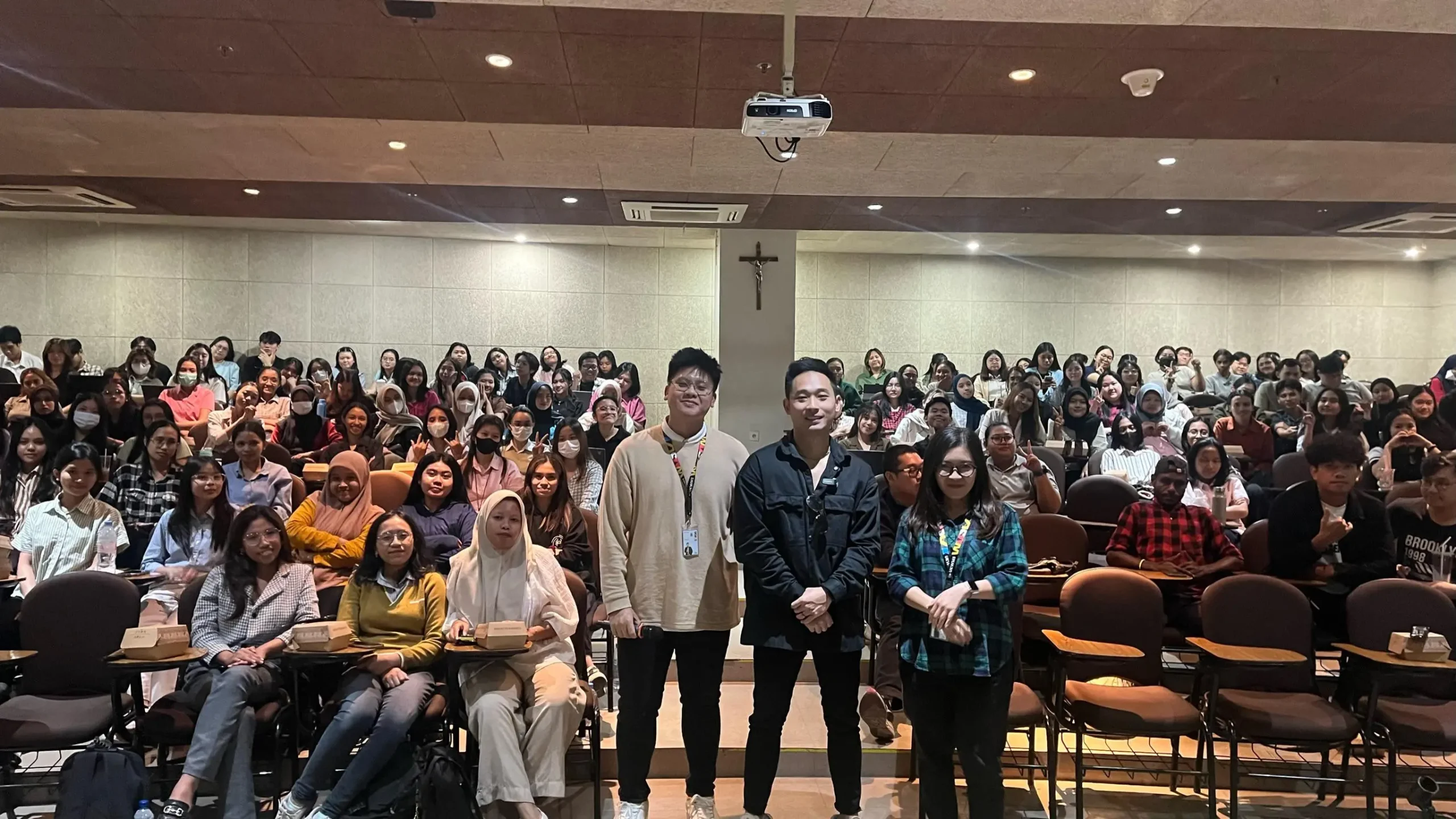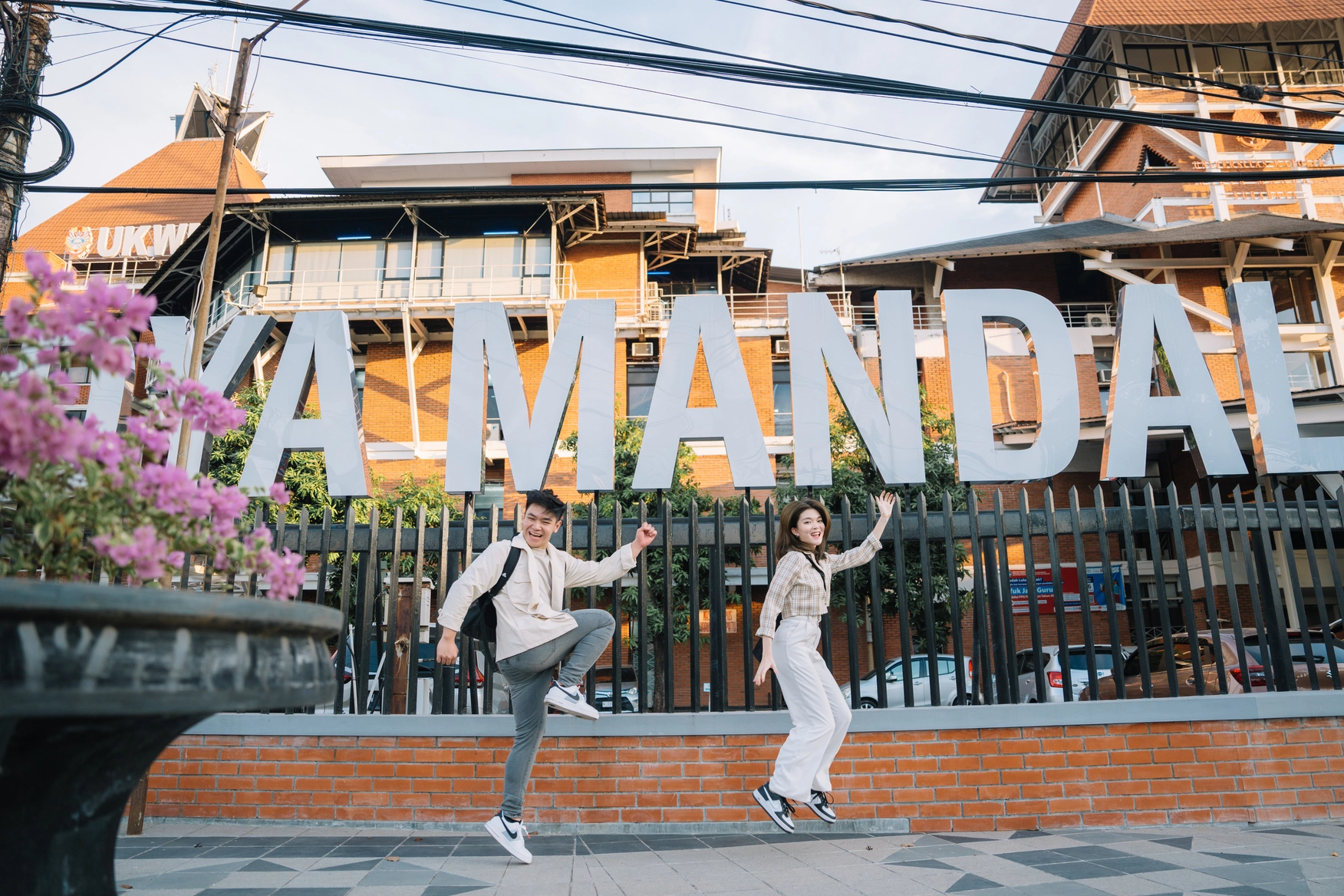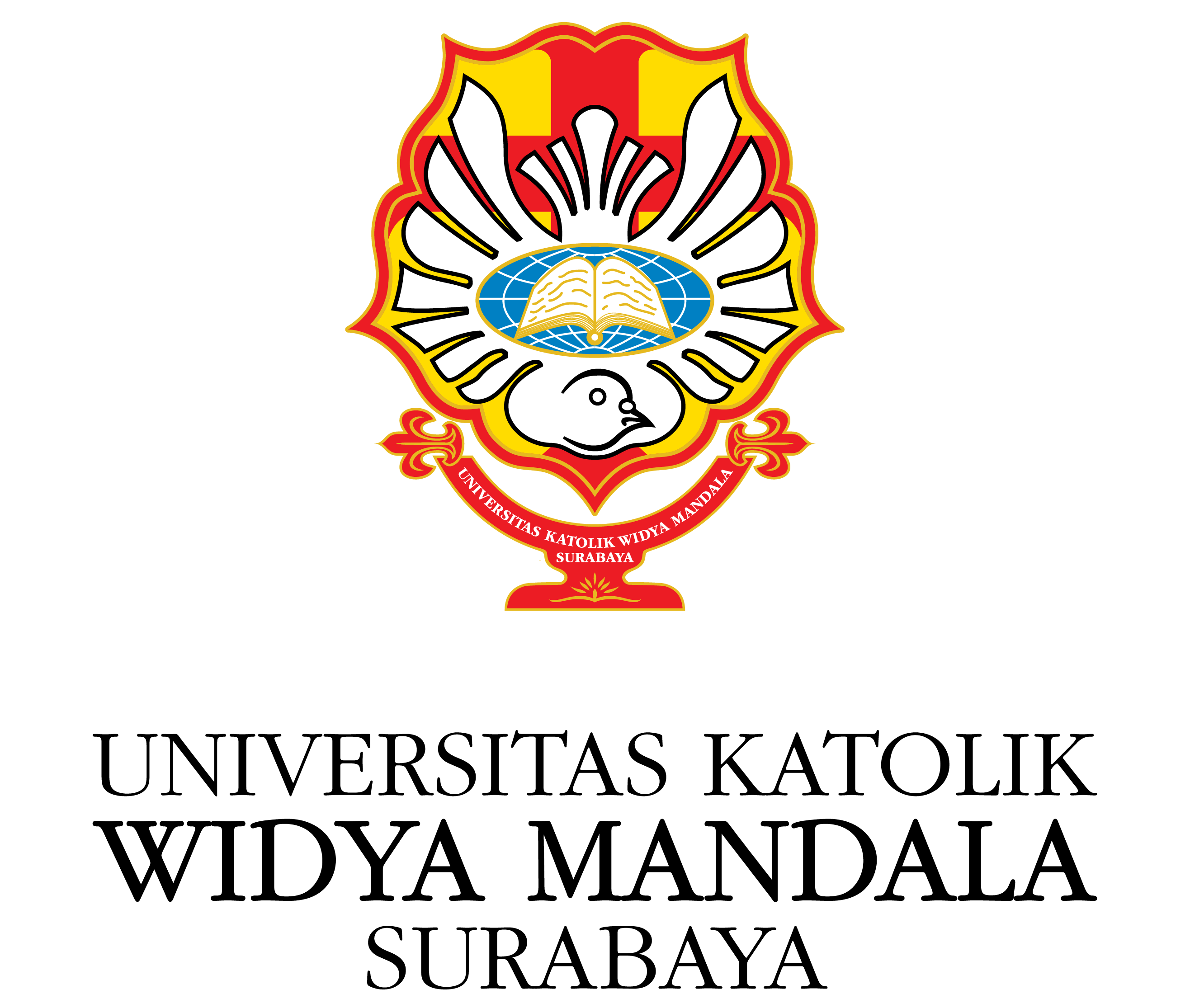Infection is very dangerous for humans, especially for people who have special conditions, such as diabetes and cancer. When the body is injured, we usually wear a bandage to cover the part of the wound so that it is not infected. The use of bandage is not necessarily completely use up in one time usage . Plastic that has been opened may allow bacteria to enter the rest of the bandage and cause infection. Rooted from this problem, Graccia Elvina Wijaya, a Chemical Engineering student from the Faculty of Engineering of Widya Mandala Catholic University of Surabaya (WMCUS), found a solution for a plastic bandage substitute, which is the Alginate Mesopore Silica Nano Composite.
In her research, Graccia used raw materials of sodium alginate, calcium chloride, sodium hydroxide, Tetra Ethyl Ortho Silicate (TEOS), zinc nitrate, silver nitrate, and cetyl trimethylammonium bromide (CTAB). Alginate itself is a group of long chain carbohydrates (polysaccharides) commonly found on cell walls of seaweed or algae. Alginate is commonly used to form a gel in solution; in other words as a thickener. Mesopore silica itself is a silica that has nano-sized pores. The pores are filled with antibacterial by using a vibration method and then followed by a stirring method until a composite in the form of solids containing antibacterial is obtained. The composite was then filled into the liquid sodium alginate by stirring and mixing using a magnetic stirrer. Furthermore, sodium alginate is formed into a film or sheet with a cross-link reaction, which is being soaked in CaCl2 and then dried. To increase the elasticity of the sheet, glycerin is added to the sodium alginate solution.
This Semarang-born student also explained that the results of the test characteristics of her work is not exactly the same as the characteristics of plastic, so further development needs to be done. But in terms of chemical reactions (synthesis) with alginate, it has been successful and can be degraded (decomposed). Bioplastic itself is a type of plastic that is easily broken down due to a gradual decrease in the composition of chemical compounds under certain conditions. “Because it is not exactly the same as the characteristics of plastic, the approach of my thesis is as a synthesis containing antibacterial, which later serves to replace plastic in the bandage,” explained Graccia.
Graccia, who was also a grant recipient of the 2015 Student Creativity Program (PKM-P), was guided in her research by Sandy Budi Hartono, Ph.D., IPM. and Wenny Irawaty, Ph.D., HDI. It took 4 to 5 months to complete the research. Although fairly short, her research had encountered difficulties; one of them was that the synthesis of materials needed a long time, therefore high accuracy was needed in the process to reduce the risk of errors. She hopes that these innovations can be developed and refined again, so that they can be applied to bandages and reduce the adverse effects of plastic waste.
Graccia is one example of active and accomplished students. She was once a Practicum Assistant for Chemical Engineering 1 course and became part of the Student Organization in her faculty. Some of the achievements that Graccia had obtained were winning the Runner Up position at the 2017 Chemical Engineering Competition (CEC) and the Third position at the Tool Designing Competition in 2015. The two competitions were internal student-level competitions held by the Chemical Engineering Study Program of WMCUS. Not only that, Graccia fills her free time by becoming a private tutor for students in International School and elementary and junior high school students in Tutor Group.
Thanks to her tenacity, Graccia won the Best Academic Graduate award at the 2017/2018 Academic Year – Even Semester Graduation ceremony. Graccia added, “After everything that I have accomplished, my focus is on learning. Learning is not just about chemical engineering and the academic field, but the most important thing is learning to be able to socialize with anyone, for example with friends, to exchange opinions with lecturers,” she concluded.

